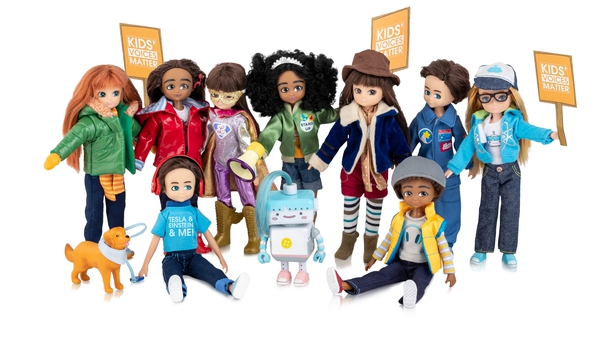Research led by Durham University has shown that playing with ultra-thin dolls may negatively affect body image in girls as young as five.
The study was carried out with groups of girls aged between five and nine and saw them playing with ultra-thin dolls, either a Barbie or a Monster High Claudeen doll and also with realistic dolls, a Lottie doll or a Dora doll, the latter being no longer in production.
The Lottie dolls used in the research are created by a Donegal company and are based on the average proportions of a nine-year-old and advocate a positive take on childhood and empowering girls.
Professor Lynda Boothroyd of Durham University's Department of Psychology said the aim of the study was to examine whether playing with ultra-thin dolls resulted in a shift in children's visual perception of their ideal body size and therefore an increase in body dissatisfaction.
Researchers found that when girls played with the ultra-thin fashion dolls they showed a significant reduction in their ideal body size and an increase in body dissatisfaction relative to girls who had played with realistic weight, child-like dolls.
Playing with the realistic dolls had no negative impact on girls' body image.

The study also showed that the negative impacts of playing with the skinny dolls however, cannot be immediately countered through play with realistic childlike dolls, nor washed out with a control toy such as cars.
Prof Boothroyd said that "body dissatisfaction is a huge problem, particularly amongst young girls. It can have serious consequences for girls' wellbeing and lead to eating disorders and depression.
"Ultra-thin dolls, which are sold in the millions each year, could have a real negative impact on girls' body image and this is on top of all the images of unrealistic body sizes they see on television, in films and on social media" she said.
She said it is "something that needs to be addressed in order to reduce the pressure on girls and women to aspire to a "thin ideal body".
Ian Harkin, the co-founder of Lottie dolls, which were developed alongside academic experts in child development, said toymakers should now stop making ultra-thin dolls.

"This latest study", he said "is the most comprehensive report to date on the impact of skinny dolls on girls' perception of their own body shape.
"It's time for manufacturers, retailers, toy associations and toy awards to take positive action and stop promoting dolls with unrealistic body shapes in the market. Toy industry professionals have read these reports but continue to ignore the findings," he said.
According to Mr Harkin, 95% of dolls that can be purchased online or in stores are of the ultra-thin type and "it's hard for parents to refuse them when they are heavily marketed to young girls."
He said that "instead of teaching kids they all need to look the same, why not teach them to embrace who they are and include other kids instead? We develop dolls with diverse skin colours body sizes and abilities, precisely because we want to promote positive self-image and instill values of kindness and inclusivity."






